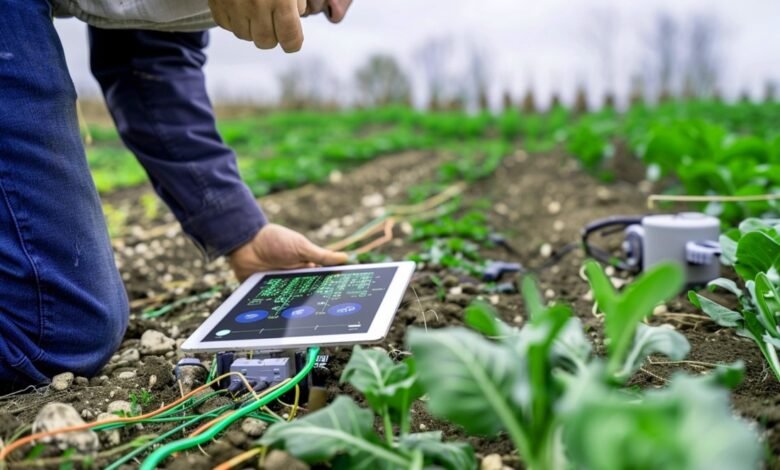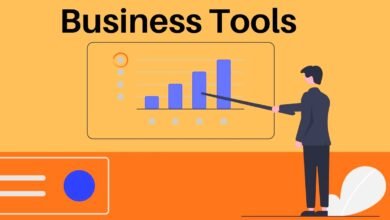
The agriculture industry is the backbone of Pakistan’s economy, contributing approximately 24% to the GDP and employing nearly 40% of the labor force. However, the sector faces numerous challenges, including water scarcity, climate change, outdated farming practices, and low productivity. In recent years, the integration of Internet of Things (IoT) technology has emerged as a game-changer, offering innovative solutions to these pressing issues. This article explores the role of IoT in Pakistan’s agriculture industry, highlighting its transformative potential and the benefits it brings to farmers, the economy, and the environment.
Understanding IoT in Agriculture
The Internet of Things (IoT) refers to a network of interconnected devices that collect, exchange, and analyze data in real-time. In agriculture, IoT involves the use of sensors, drones, smart irrigation systems, and other devices to monitor and optimize farming operations. These technologies enable farmers to make data-driven decisions, improve resource management, and enhance crop yields.
In Pakistan, where traditional farming methods still dominate, IoT offers a pathway to modernize the agriculture sector. By leveraging IoT, farmers can overcome challenges such as unpredictable weather patterns, water shortages, and pest infestations. The role of IoT in Pakistan’s agriculture industry is pivotal in bridging the gap between traditional practices and modern agricultural advancements.
IoT-Driven Precision Farming
Precision farming is one of the most significant applications of IoT in agriculture. It involves using data from sensors, GPS, and satellite imagery to monitor soil conditions, crop health, and weather patterns. This data is then analyzed to optimize planting, fertilization, and irrigation processes.
In Pakistan, precision farming can address issues like over-fertilization and inefficient water usage. For instance, IoT-enabled soil sensors can measure moisture levels and nutrient content, allowing farmers to apply fertilizers and water only where needed. This not only reduces costs but also minimizes environmental impact.
The role of IoT in Pakistan’s agriculture industry is particularly crucial for small-scale farmers who often lack access to advanced tools. By adopting precision farming techniques, these farmers can increase their productivity and profitability, contributing to the overall growth of the sector.
Smart Irrigation Systems for Water Conservation
Water scarcity is a major challenge for Pakistan’s agriculture industry, with the country ranking among the most water-stressed nations globally. Traditional irrigation methods, such as flood irrigation, are highly inefficient and lead to significant water wastage.
IoT-based smart irrigation systems offer a sustainable solution to this problem. These systems use sensors to monitor soil moisture levels and weather forecasts in real-time. Based on this data, they automatically adjust the amount of water delivered to crops, ensuring optimal irrigation.
The role of IoT in Pakistan’s agriculture industry in promoting water conservation cannot be overstated. By adopting smart irrigation systems, farmers can reduce water usage by up to 50%, ensuring that this precious resource is used efficiently. This is especially important in regions like Sindh and Balochistan, where water scarcity is a critical issue.
Crop Monitoring and Pest Control
Crop monitoring is another area where IoT is making a significant impact. Drones equipped with cameras and sensors can capture high-resolution images of fields, providing detailed insights into crop health. These images can detect early signs of disease, nutrient deficiencies, or pest infestations, allowing farmers to take timely action.
In Pakistan, where pests and diseases cause substantial crop losses every year, IoT-based crop monitoring can be a game-changer. For example, IoT devices can identify pest hotspots and trigger targeted pesticide applications, reducing the need for widespread chemical use. This not only protects crops but also minimizes environmental pollution.
The role of IoT in Pakistan’s agriculture industry in enhancing crop monitoring and pest control is vital for ensuring food security and reducing post-harvest losses. By adopting these technologies, farmers can protect their yields and improve the quality of their produce.
Livestock Management with IoT
Livestock farming is an integral part of Pakistan’s agriculture sector, contributing significantly to the rural economy. However, traditional livestock management practices are often labor-intensive and inefficient.
IoT offers innovative solutions for livestock monitoring and management. Wearable devices, such as smart collars and ear tags, can track the health, location, and activity levels of animals. These devices provide real-time data on vital signs, such as body temperature and heart rate, enabling early detection of illnesses.
The role of IoT in Pakistan’s agriculture industry in improving livestock management is transformative. By using IoT-enabled devices, farmers can enhance animal welfare, increase milk and meat production, and reduce mortality rates. This is particularly beneficial for smallholder farmers who rely on livestock for their livelihoods.
IoT and Supply Chain Optimization
The agriculture supply chain in Pakistan is often plagued by inefficiencies, leading to significant post-harvest losses and reduced profitability for farmers. IoT can play a crucial role in optimizing the supply chain by providing real-time visibility into the movement and condition of agricultural products.
For instance, IoT sensors can monitor temperature and humidity levels during the transportation of perishable goods, ensuring that they remain fresh. Blockchain technology, integrated with IoT, can also enhance traceability, allowing consumers to verify the origin and quality of their food.
The role of IoT in Pakistan’s agriculture industry in streamlining the supply chain is essential for reducing waste and improving market access for farmers. By adopting IoT-based solutions, stakeholders can ensure that agricultural products reach consumers in optimal condition, boosting both farmer incomes and consumer satisfaction.
Challenges to IoT Adoption in Pakistan
While the potential of IoT in Pakistan’s agriculture industry is immense, several challenges hinder its widespread adoption. These include:
- High Initial Costs: The upfront investment required for IoT devices and infrastructure can be prohibitive for small-scale farmers.
- Limited Connectivity: Rural areas, where most farming activities take place, often lack reliable internet access, which is essential for IoT functionality.
- Lack of Awareness: Many farmers are unaware of the benefits of IoT or lack the technical knowledge to use these technologies effectively.
- Policy and Regulatory Barriers: The absence of supportive policies and regulations can slow down the adoption of IoT in agriculture.
Addressing these challenges requires a collaborative effort from the government, private sector, and educational institutions. Initiatives such as subsidies for IoT devices, improved rural connectivity, and farmer training programs can accelerate the adoption of IoT in Pakistan’s agriculture industry.
The Future of IoT in Pakistan’s Agriculture Industry
The future of IoT in Pakistan’s agriculture industry is promising, with the potential to revolutionize the sector. As technology becomes more affordable and accessible, an increasing number of farmers are likely to adopt IoT solutions. Government initiatives, such as the Digital Pakistan Vision, aim to promote the use of technology in various sectors, including agriculture.
In the coming years, advancements in artificial intelligence (AI) and machine learning (ML) are expected to further enhance the capabilities of IoT. For example, AI-powered analytics can provide more accurate predictions and recommendations, enabling farmers to make better decisions.
The role of IoT in Pakistan’s agriculture industry will continue to grow, driving sustainability, productivity, and economic growth. By embracing IoT, Pakistan can position itself as a leader in smart agriculture, setting an example for other developing nations.
Conclusion
The role of IoT in Pakistan’s agriculture industry is transformative, offering innovative solutions to long-standing challenges. From precision farming and smart irrigation to crop monitoring and supply chain optimization, IoT has the potential to revolutionize the way agriculture is practiced in Pakistan. While challenges remain, the benefits of IoT adoption far outweigh the obstacles, making it a crucial tool for the future of farming.
By investing in IoT technologies and addressing barriers to adoption, Pakistan can unlock the full potential of its agriculture sector. This will not only improve the livelihoods of millions of farmers but also contribute to food security, environmental sustainability, and economic growth. The integration of IoT in agriculture is not just a technological advancement; it is a necessity for a thriving and resilient agricultural industry in Pakistan.











